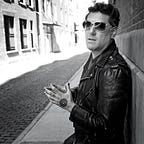A New Look at a “Fallen Angel”
Machiavelli taught more than cold-blooded attainment
“A Prince should, therefore, understand how to use well both the man and the beast.” — The Prince, chapter XVII
Political philosopher Leo Strauss (1899–1973) considered Niccolò Machiavelli a “fallen angel” of realpolitik. “To recognize the diabolical character of Machiavelli’s thought,” Strauss wrote in his 1958 Thoughts on Machiavelli, “would mean to recognize it as a perverted nobility of a very high order.”
Machiavelli himself may have issued a preemptive rejoinder, noting in the final chapter of The Prince: “God will not do everything himself.” The philosopher extolled human agency, whether flawed or refined, as a matter of “free will” and a proper means of securing “such share of glory as belongs to us.” Although Machiavelli leaned safely on the religious vocabulary of his Renaissance era, it is no stretch to call him a humanist.
Since its posthumous publication in 1532, Machiavelli’s treatise on claiming and holding power has been synonymous with deception, ruthlessness, and even brutality. For centuries, “Machiavellian” has connoted cunning amorality. I have inveighed against recent popular works such as The 48 Laws of Power, which endorse morally neutral, sneaky, or manipulative methods of personal advancement.
